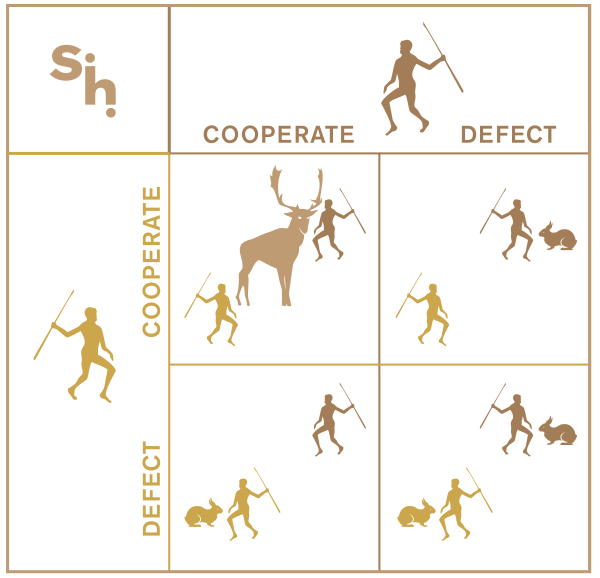
A diagram of the options in game theory’s Stag Hunt. (credit: Wikimedia Commons)
In the Discourses on the Origin of Inequality, the political philosopher Jean-Jacques Rousseau imagines a hypothetical prehistoric Stag Hunt. Each hunter working alone can catch a hare, but hares aren’t very meaty. Working together a group can cooperate to take down a stag—but only if everyone is committed. If someone spots a hare and decides to go after it, the stag escapes and everyone else ends up hungry.
Economic studies in which university students in the US played simulated versions of the Stag Hunt indicated that at some point, pairs would realize that it was in both of their best interests to commit to hunting the stag and they would fall into “an efficient and cooperative equilibrium.” But it turns out that American university students are not a particularly representative subset of humanity and cannot necessarily grant deep insights into human nature. They are too WEIRD: Western, Educated, Industrial, Rich, and Developed.
When Indian men in the rural northern Indian state of Uttar Pradesh played the game, only low-caste men acted like the American students. High-caste men decidedly did not fall into an efficient cooperation.
Read 7 remaining paragraphs | Comments
https://arstechnica.com/?p=1407023





